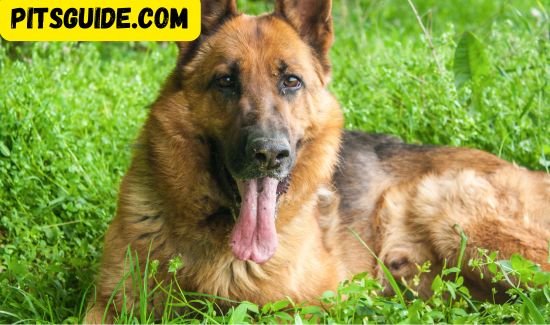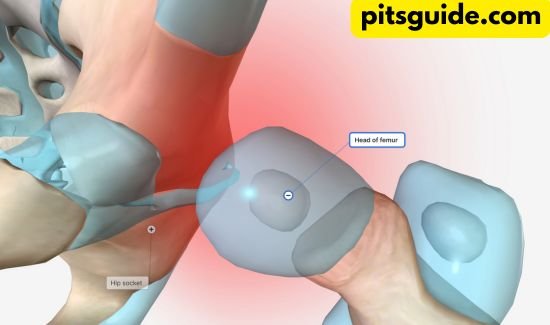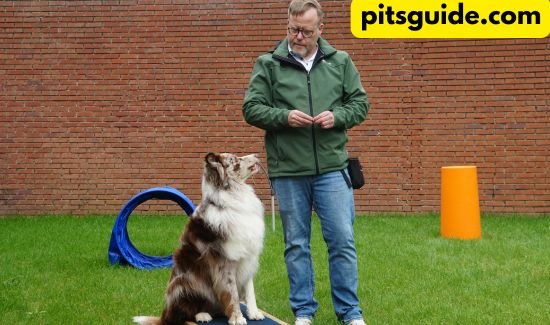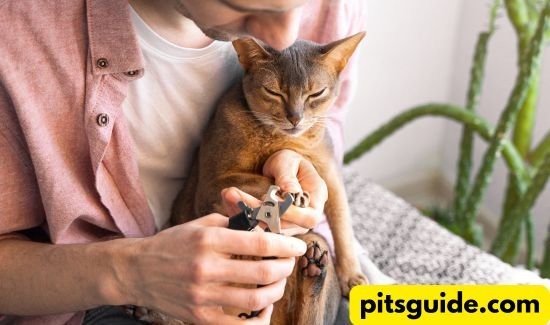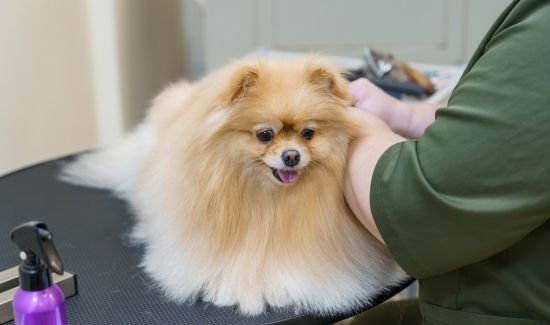Table of Contents
1. **Introduction to Pit Bull Care**
– Understanding the Responsibilities of Pit Bull Ownership
– The Importance of Proper Care
2. **Understanding the Unique Needs of Pit Bulls**
– Physical Characteristics and Temperament
– Common Misconceptions About Pit Bulls
– Breed-Specific Health Considerations
3. **Essential Pit Bull Care**
– Establishing a Healthy Routine
– Preventive Health Care Essentials
– Socialization and Training Basics
4. **Nutrition and Feeding Guidelines**
– Creating a Balanced Diet Plan
– Feeding Schedules and Portion Control
– Dietary Supplements and Special Needs
5. **Exercise and Mental Stimulation**
– Physical Activity Requirements
– Mental Stimulation for a Happy Pit Bull
– Combining Exercise and Enrichment
6. **Training and Socialization Strategies**
– Basic Obedience Training Methods
– Positive Reinforcement Techniques
– Social Integration and Confidence Building
7. **Health Monitoring and Preventive Care**
– Routine Health Checks and Grooming
– Preventive Measures for Common Issues
– Early Detection and Treatment of Health Problems
8. **Conclusion**
– Embracing the Role of a Pit Bull Advocate
– Strengthening the Bond with Your Pit Bull
9. **Frequently Asked Questions (FAQ)**
– Unique Traits and Temperament of Pit Bulls
– Meeting Pit Bull Nutritional Needs
– Exercise and Mental Stimulation Best Practices
– Effective Training and Socialization Tips
– Key Health Monitoring and Preventive Care Practices
Master the Art of Pit Bull Care Like a Pro
It’s gratifying and difficult to be a conscientious pit bull owner. This breed has special looks and a unique personality. To care for them well, you need to know a lot.
But what does it really mean to be a pit bull care expert? Find out in this detailed guide. Learn the secrets to caring for your pit bull like a pro.
Key Takeaways
- Understand the distinct physical and behavioral traits of the pit bull breed
- Debunk common misconceptions about pit bulls and learn the truth
- Discover essential care requirements for optimal pit bull health and well-being
- Develop effective training and socialization strategies to build a strong bond
- Implement a comprehensive preventive care plan to keep your pit bull thriving
Understanding the Unique Needs of Your Pit Bull Breed
Pit bulls have a special look and way of being. To care for them well, you need to know what makes them different.
Physical Characteristics and Temperament
Pit bulls are strong and sturdy. They have a short, smooth coat and many colors. They are bold, loving, but can be stubborn too.
Common Misconceptions About Pit Bulls
- Pit bulls are not naturally mean. Their behavior depends on where they grow up.
- They don’t have special jaws or bite harder than others. Their bite strength is like other medium-sized dogs.
- Not just pit bulls cause dog attacks. Many breeds, like labradors and golden retrievers, can too.
Breed-Specific Health Considerations
Pit bulls are susceptible to thyroid, allergy, and hip and elbow disorders. The trick is to take them to the vet frequently. They might also need special food or supplements.
| Health Condition | Prevalence in Pit Bulls | Possible Symptoms |
| Hip Dysplasia | Moderately Common | Stiffness, pain, difficulty moving |
| Allergies | Common | Skin irritation, excessive scratching, ear infections |
| Thyroid Dysfunction | Moderately Common | Weight changes, lethargy, changes in coat/skin |
The first step to giving your pit bull the greatest treatment possible and guaranteeing their general health and well-being is to comprehend their particular needs.
Essential Pit Bull Care: A Comprehensive Guide
Being a good pit bull owner means knowing what they need. This guide helps with everything from daily care to keeping them healthy for life. It’s great for both new and seasoned owners. It gives you tips to keep your dog happy and healthy.
Establishing a Healthy Routine
Keeping a regular daily schedule is important for your pit bull. This means:
- Feeding them a balanced diet that fits their age and how active they are
- Playing with them and teaching them new things to keep their mind sharp
- Keeping their coat and nails clean by grooming them regularly
Preventive Health Care
Going to the vet, getting shots, and staying healthy are key. This includes:
- Going to the vet for check-ups to catch health problems early
- Getting them vaccinated to keep them safe from sickness
- Using remedies to keep heartworms, fleas, and ticks away
Socialization and Training
Teaching your pit bull to be friendly and well-behaved is vital. This means:
- Introducing them to different people, animals, and places in a safe way
- Using positive methods to teach them good habits and listen to commands
- Practicing obedience and giving them fun activities to keep their mind active
By using this guide, you’ll be able to give your pit bull the best care. Remember, with the right care, pit bulls can be wonderful friends.
Nutrition and Feeding Guidelines for Optimal Health
Keeping your pit bull nutrition and pitbull nutrition healthy is key. A diet plan made just for your dog helps them grow strong and healthy.
Creating a Balanced Diet Plan
A good dog nutrition plan has proteins, carbs, fats, vitamins, and minerals. Mix lean meats, whole grains, veggies, and fruits for a full diet. Talk to your vet to find the right food amounts for your dog’s age, activity, and health needs.
Feeding Schedule and Portion Control
- Feed your dog two to three times a day for a healthy routine and to avoid overeating.
- Use the right portion sizes based on your dog’s size, weight, and energy needs. Don’t free-feed to prevent obesity.
- Slowly introduce new foods to help your dog’s stomach adjust and avoid upset.
Dietary Supplements and Special Needs
Some pit bulls need supplements for health issues or missing nutrients. Talk to your vet about supplements for joints, skin, coat, or digestion. Dogs with allergies or kidney disease might need special diets to feel better.
| Nutrient | Function | Best Sources |
| Protein | Muscle and tissue development, immune function | Lean meats, eggs, fish |
| Carbohydrates | Energy source, fiber for digestive health | Whole grains, fruits, vegetables |
| Healthy Fats | Energy, skin and coat health, joint support | Fatty fish, plant-based oils, nuts |
| Vitamins and Minerals | Immune system, bone health, organ function | Fruits, vegetables, supplements |
The cornerstone of a healthy, contented, and active pit bull is proper diet.By providing a balanced diet and following appropriate feeding guidelines, you can ensure your dog thrives.”
Exercise and Mental Stimulation Requirements
Keeping your pit bull healthy is very important.They require a lot of mental play and exercise.This keeps them fit and happy.
Unleash Their Boundless Energy
Pit bulls have lots of energy. They need to run and play every day. Here are some good ways to keep them active:
- jogging or doing brisk walks for at least an hour each day
- Playtime at the park or in a secure, fenced-in yard
- Engagement in canine sports such as agility, flyball, or dock diving
- Swimming, which is an excellent low-impact exercise for pit bulls
Start slowly with exercise to avoid injuries.
Stimulate Their Minds
Pit bulls also need to think and learn. Training and puzzles keep them busy and happy. Here are some ideas:
- Obedience training, reinforcing basic commands and tricks
- Nose work games, where your pit bull uses their keen sense of smell to find hidden treats
- Engagement in canine sports such as agility, flyball, or dock diving
- Participation in dog sports or activities that require focus and problem-solving
Meeting their physical and mental needs makes them happy and healthy.
| Exercise Needs | Mental Stimulation Activities |
|
|
By addressing both the physical and mental needs of your pit bull, you can ensure they lead a fulfilling and enriched life.
Training and Socialization Strategies
Owning a pit bull means you have to train and socialize them well. This makes sure they behave well and feel comfortable around others. Learning how to train and socialize your pit bull helps you bond with them. It also makes them more confident and well-mannered.
Basic Obedience Training Methods
It’s critical to instill fundamental obedience in your pit bull. Start with simple commands like “sit,” “stay,” and “come.” Use treats or praise to reward them when they do something right. This helps them learn and remember these important commands.
Positive Reinforcement Techniques
- Use clickers, verbal cues, and food rewards to reinforce desired behaviors.
- Avoid harsh training methods, as they can undermine your pit bull’s trust and confidence.
- Be patient and consistent in your training approach, as pit bulls thrive on structure and clear expectations.
Social Integration Tips
Socializing your pit bull is crucial for their happiness and acceptance. Introduce them to new people, animals, and places slowly. Make sure they’re safe and comfortable. Use playtime and rewards to encourage good behavior in social situations.
By using these training and socialization tips, your pit bull can become a well-adjusted and confident pet. Keep in mind that the most important things are patience, consistency, and optimism. With these, you can master the art of caring for your pit bull and help them succeed.
Health Monitoring and Preventive Care
Keeping your pit bull healthy is very important. You need to watch their health closely and take care of them. This includes regular vet visits and grooming.
Routine Health Checks
It’s key to take your pit bull to the vet often. These visits help your vet check your dog’s health. They can spot problems early and treat them quickly.
Your vet might suggest:
- Annual physical examinations
- Biannual wellness exams
- Screening tests for common pit bull health concerns
- Dental cleanings and oral health assessments
Preventive Care Measures
There are steps you can take to keep your pit bull healthy:
- Keep up with vaccinations
- Use flea, tick, and heartworm prevention
- Do regular grooming like nail trimming and baths
- Watch your dog’s weight and body shape
Early Detection of Health Issues
Knowing about common health problems in pit bulls helps you spot issues early. Look for signs like changes in appetite or behavior.Consult your veterinarian immediately if you see anything unusual.
Acting fast can really help your dog’s health in the long run.
| Routine Health Check | Recommended Frequency |
| Physical Examination | Annually |
| Wellness Exam | Biannually |
| Dental Cleaning | Annually |
| Heartworm Test | Annually |
The greatest approach to make sure your pit bull has a long, happy, and rewarding life is to prevent health problems.
Conclusion
We’ve looked into how to care for pit bulls. We’ve talked about their special traits and how to fight common myths. Now, you know how to give them the best care and be a great owner.
Starting this journey means you’re ready to stand up for pit bulls. By teaching others and showing their good sides, you help change how people see them. Pit bulls are affectionate, devoted, and frequently misinterpreted.
Caring for a pit bull brings more than just taking care of them. It’s about the strong bond, loyalty, and happiness they bring. So, take on the challenge, celebrate your wins, and be a voice for pit bulls in your area.
FAQ
What are the unique physical characteristics and temperament of pit bulls?
Pit bulls have strong muscles and jaws. They are loyal and loving. They need proper care and socialization to be great pets.
How can I ensure I meet the nutritional needs of my pit bull?
Make a balanced diet plan for your pit bull. Stick to a feeding schedule and give the right amount of food. A vet or animal nutritionist can help with the best diet and supplements.
What type of exercise and mental stimulation do pit bulls require?
Pit bulls need lots of exercise and brain games. Walks, playtime, and mind challenges keep them healthy and happy.
How can I effectively train and socialize my pit bull?
Use positive training methods and rewards. Introduce your pit bull to new people and places slowly. This helps them be well-behaved and confident.
What are the essential health monitoring and preventive care practices for pit bulls?
Take your pit bull for regular vet visits and keep up with vaccinations. Good grooming and quick medical care are also important. They live longer and remain healthy as a result.


